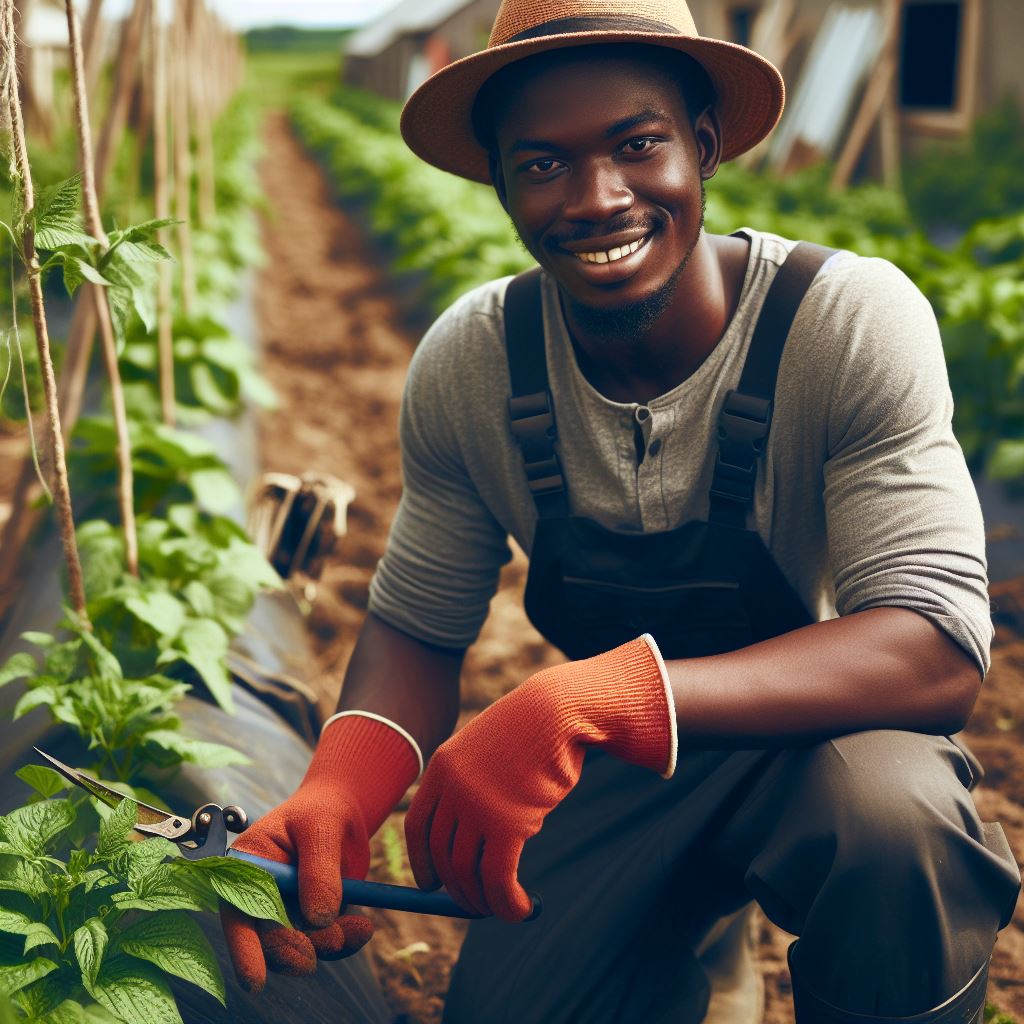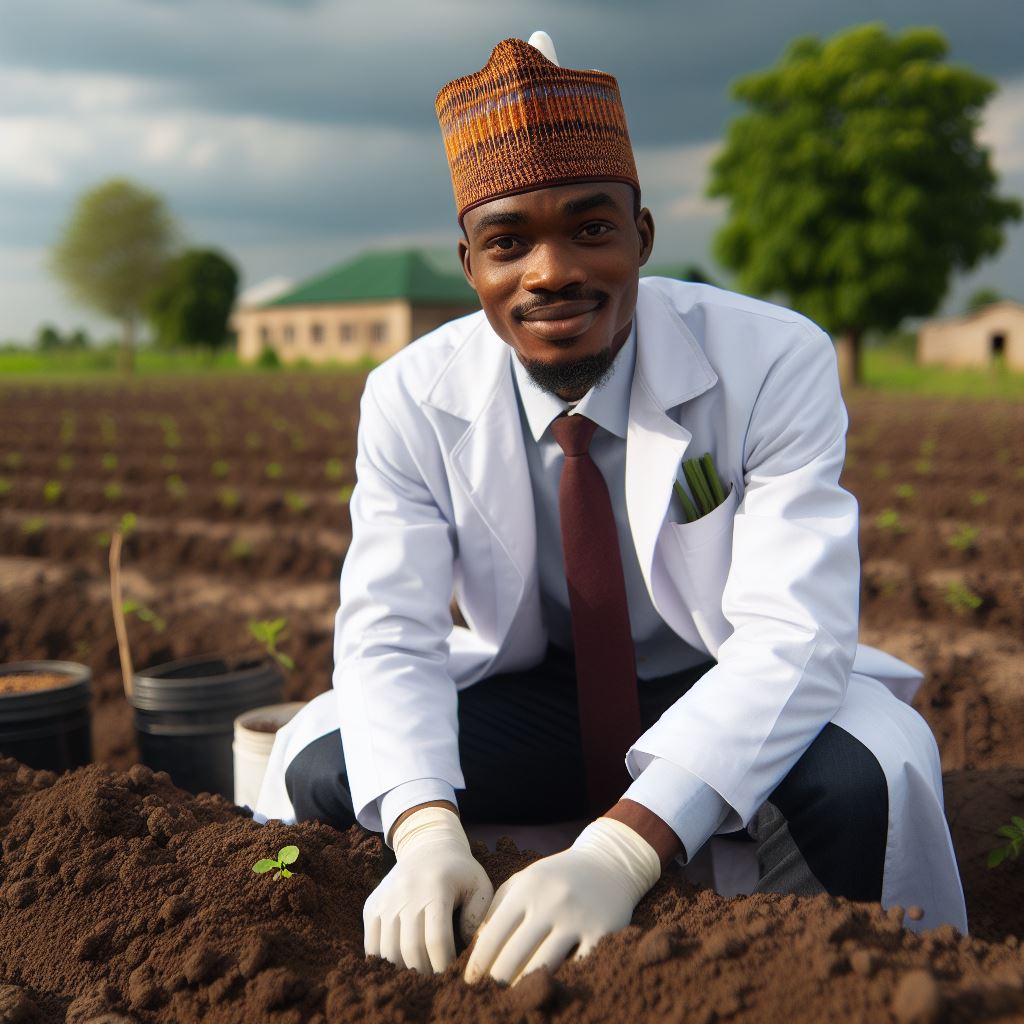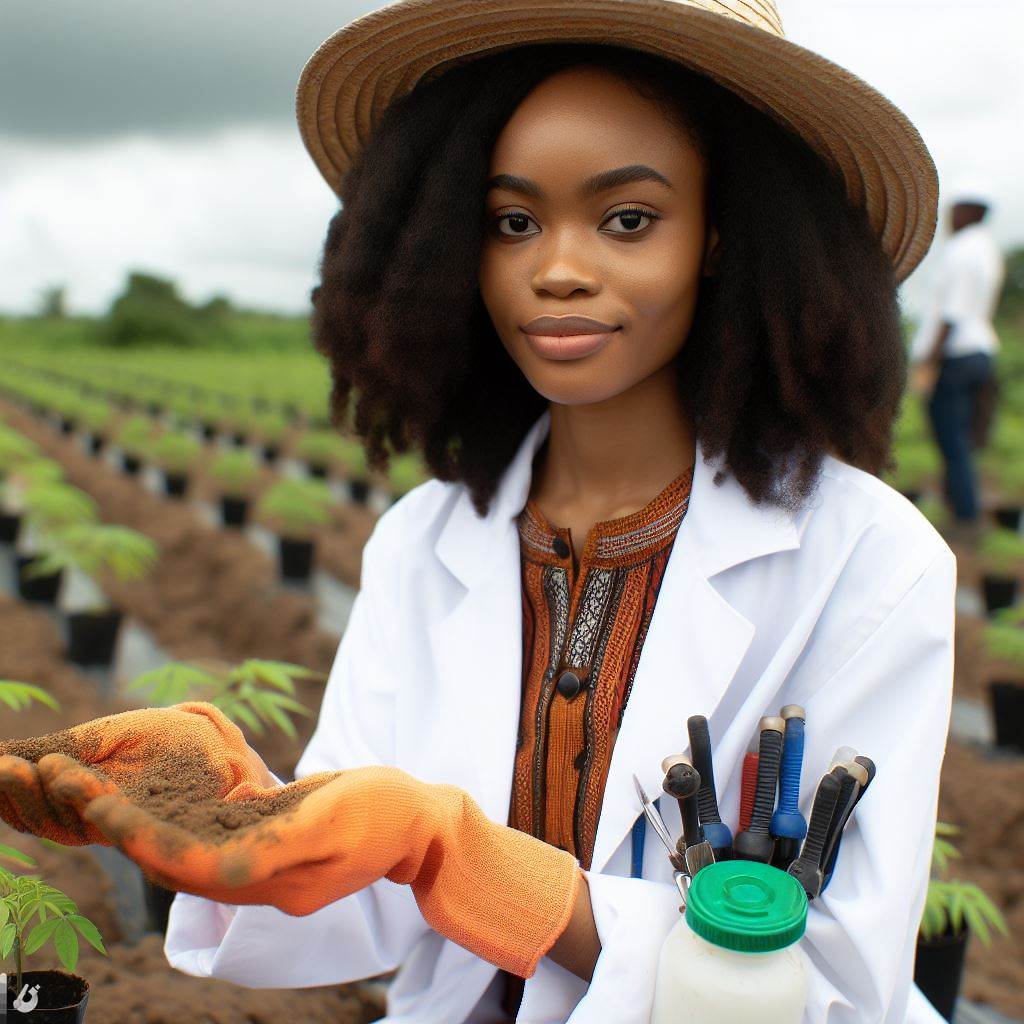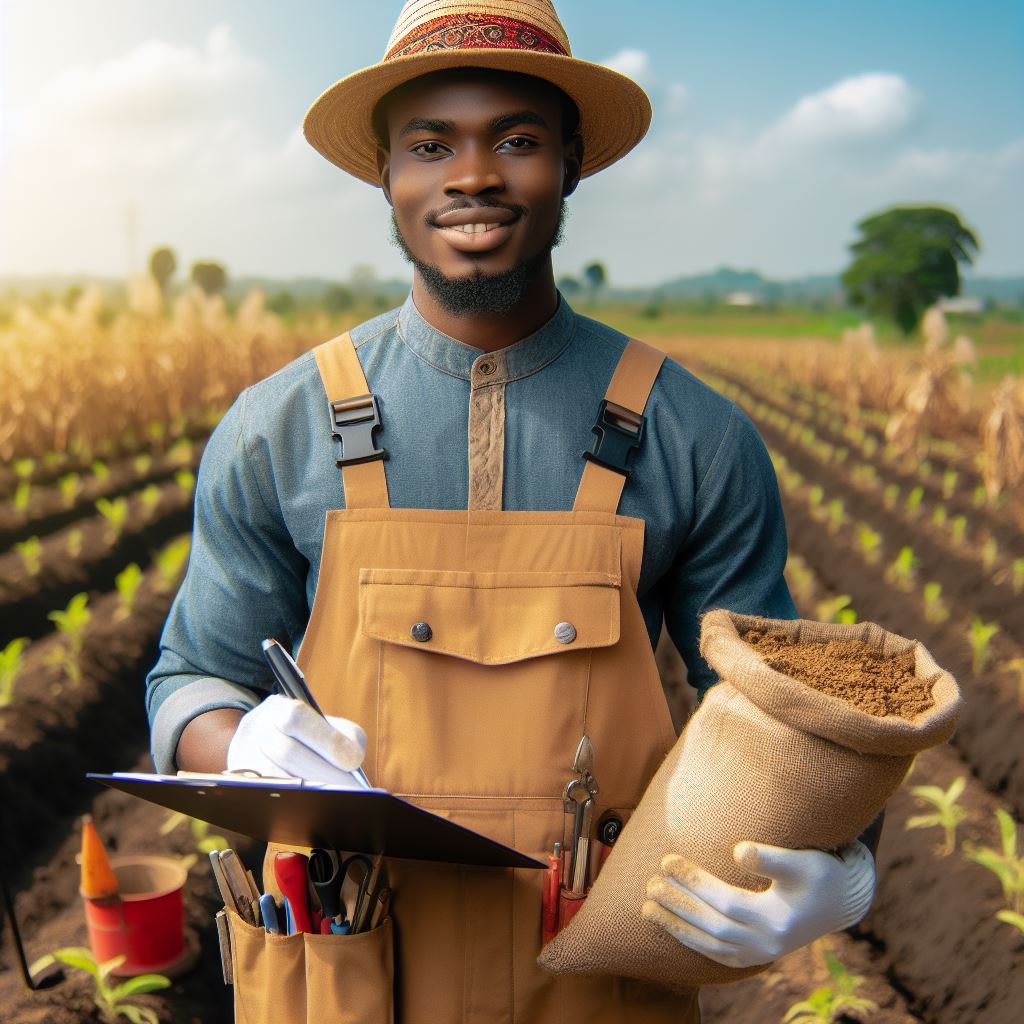Introduction
Traditional farming, a practice passed down through generations, involves manual labor and sustainable methods.
It is a system that heavily relies on age-old techniques, with farmers relying on their experience and traditional knowledge to cultivate crops.
This method emphasizes the use of organic fertilizers, crop rotation, and intercropping to maintain soil fertility and prevent pest infestation.
Despite the rise of technologically advanced agricultural practices, traditional farming still has an important role to play in modern crop science learning.
Modern crop science learning, on the other hand, has revolutionized the agricultural industry. It encompasses various scientific disciplines, including genetics, biotechnology, and agronomy.
This enables farmers to understand the different aspects of crop production, helping them make informed decisions regarding improved seed varieties, pest management, efficient irrigation methods, and soil nutrient management.
The knowledge gained from modern crop science learning not only increases yield and profits but also helps in preserving the environment by reducing the use of harmful chemicals and optimizing resource utilization.
The integration of traditional farming practices with modern crop science learning is essential to address the challenges of sustainable agriculture.
By combining the wisdom of traditional farmers with scientific advancements, it is possible to achieve both productivity and environmental sustainability.
This collaboration allows for a comprehensive approach to crop production, taking into account the needs of farmers, consumers, and the ecosystem.
In face, traditional farming has its roots deeply embedded in our agricultural history, while modern crop science learning provides the necessary tools and knowledge for sustainable crop production.
The marriage of both approaches is crucial in ensuring food security, environmental preservation, and the equitable distribution of resources in the modern world.
Traditional farming techniques and practices
Overview of Traditional Farming Methods
Traditional farming, rooted in centuries-old wisdom, offers invaluable insights for modern crop science learners. Methods handed down through generations hold a treasure trove of sustainable practices.
Use of Organic Fertilizers and Pest Control Methods
In traditional farming, reliance on organic fertilizers replaces synthetic chemicals.
Farmers, attuned to nature, employ pest control methods that maintain ecological balance without disrupting the delicate harmony of the environment.
Preservation of Seeds and Crop Diversity
The art of seed preservation, a cornerstone of traditional farming, safeguards biodiversity.
This practice, often overlooked in modern agriculture, fortifies resilience against changing climates and evolving pest threats.
Importance of Sustainable Agriculture
Sustainable agriculture, a tenet of traditional farming, isn’t a mere choice but a necessity for a thriving future.
The delicate equilibrium nurtured by age-old practices ensures long-term fertility, conserving resources for generations to come.
In this dynamic era, acknowledging the role of traditional farming in the realm of crop science is pivotal. The robust foundation laid by our ancestors provides a roadmap for sustainable agriculture.
As we delve into the rich tapestry of traditional methods, we uncover the essence of coexisting with nature, rather than imposing upon it.
With a renewed focus on organic fertilizers and natural pest controls, learners navigate the delicate dance between agriculture and the ecosystem.
Seeds, revered as carriers of life, become vessels of heritage and biodiversity, forming an intricate web that sustains life on our planet.
Ultimately, the importance of sustainable agriculture echoes across time. It transcends tradition and merges seamlessly with the demands of the modern world.
As we cultivate the lessons of the past, we sow the seeds of a resilient, sustainable future.
Read: Employability Stats: Crop Production Tech Graduates in Nigeria
Integration of traditional farming in modern crop science learning
Recognition of indigenous knowledge
- Indigenous knowledge in farming should be acknowledged and respected.
- Traditional farmers possess valuable insights gained from years of experience.
- Recognition of indigenous knowledge encourages cultural preservation and sustainability.
- Traditional farming practices can contribute to the development of modern crop science.
- Combining traditional and modern knowledge creates a holistic approach to farming.
Incorporation of traditional farming techniques in crop science education
- Traditional farming techniques can be integrated into crop science curricula.
- Students benefit from practical experience in traditional farming practices.
- Hands-on learning fosters a deeper understanding of agricultural principles.
- Incorporating traditional methods enhances students’ problem-solving skills and critical thinking.
- Applying traditional techniques helps students appreciate the diversity of farming practices.
Understanding the benefits of traditional farming practices
- Traditional farming methods often promote environmental sustainability.
- Traditional farmers rely on organic fertilizers and pest control methods.
- Minimal use of chemicals reduces the negative impact on ecosystems and human health.
- Traditional practices emphasize soil conservation and proper land management.
- Learning about traditional farming practices raises awareness of sustainable agriculture.
In a nutshell, integrating traditional farming in modern crop science learning provides numerous advantages.
Recognition of indigenous knowledge promotes cultural preservation and sustainable farming practices.
Incorporating traditional farming techniques into education allows students to gain practical experience and develop essential skills.
Understanding the benefits of traditional farming practices highlights the importance of sustainable agriculture and environmental conservation.
By embracing the wisdom of traditional farmers, modern crop science can benefit from a holistic approach to learning and agricultural development.
Read: Sustainability and Organic Farming in Nigerian Crop Science Curricula

Case studies on the success of traditional farming in modern crop science learning
Examples of universities or research institutions incorporating traditional farming techniques
- Cornell University implemented traditional farming methods in their crop science program.
- The University of California, Davis, integrated traditional farming techniques into their agricultural research.
- The International Rice Research Institute in the Philippines utilized traditional farming practices in their crop science studies.
- Michigan State University incorporated traditional farming techniques in their agricultural extension programs.
Positive outcomes and results achieved
Improved understanding of crop development:
- By combining traditional farming methods with modern technology, researchers gained a deeper understanding of crop development processes.
- Direct involvement in planting and harvesting allowed students and researchers to witness the entire crop lifecycle.
- This hands-on experience enhanced their knowledge of crop growth stages and various cultivation practices.
Preservation of cultural heritage
- Integrating traditional farming techniques in crop science learning helps preserve cultural heritage associated with farming.
- Traditional farming methods have been passed down through generations, reflecting regional practices and customs.
- By incorporating these practices, universities and research institutions honor and promote cultural diversity in agriculture.
Sustainable and organic farming practices
- Traditional farming often encompasses sustainable and organic practices that prioritize environmental stewardship.
- By studying these methods, students and researchers gain insights into soil conservation, natural pest control, and water management techniques.
- Implementing these practices in modern crop science promotes sustainable agriculture and reduces environmental risks.
Enhanced crop resilience and productivity
- Traditional farming techniques have proven to enhance crop resilience and productivity in various environmental conditions.
- By integrating these methods into modern crop science curricula, researchers and students explore innovative ways to improve crop yield.
- Understanding traditional farming techniques enables the development of resilient crop varieties and farming systems.
In review, the role of traditional farming in modern crop science learning is of great importance.
Universities and research institutions have successfully incorporated traditional farming techniques, leading to positive outcomes and results.
These case studies highlight the value of bridging the gap between traditional and modern agriculture, ensuring sustainable practices, improved crop understanding, and the preservation of cultural heritage.
By recognizing the significance of traditional farming methods, we can create a more holistic approach to crop science education and research.
Read: Postgraduate Opportunities in Crop Production Technology
Challenges and Limitations of Integrating Traditional Farming in Modern Crop Science Learning
While integrating traditional farming practices into modern crop science learning can be advantageous, it is not without its challenges and limitations.
In this section, we will explore two main obstacles faced in this process: resistance to change and conventional farming practices, as well as the lack of awareness and understanding of the benefits of traditional farming.
Resistance to Change and Conventional Farming Practices
One significant challenge in incorporating traditional farming into modern crop science learning is the resistance to change.
Transform Your Career with Expert Guidance
Get personalized mentorship consulting that’s tailored to your unique path. Our expert advice is actionable and exclusive.
Get StartedMany farmers and agricultural professionals are hesitant to adopt new methods and deviate from conventional practices they are familiar with.
This resistance primarily stems from fear of failure, financial risks, and the belief that traditional farming methods are outdated.
The reliance on conventional farming practices, which often prioritize high-yield and profit-oriented approaches, can create a resistance to embracing traditional farming.
Farmers who have invested in modern machinery, genetically modified seeds, and chemical inputs may be hesitant to switch to traditional methods, as it would require substantial changes in their production systems and potentially lower short-term yields.
In order to overcome this resistance, it is crucial to educate farmers and agricultural professionals about the potential benefits and long-term sustainability of traditional farming practices.
Highlighting success stories and providing evidence-based research can help demonstrate the value of integrating traditional methods into modern crop science learning.
Lack of Awareness and Understanding of the Benefits of Traditional Farming
Another challenge is the lack of awareness and understanding regarding the benefits that traditional farming can bring.
Many individuals, including students, farmers, and policymakers, are not familiar with the advantages traditional farming methods offer in terms of sustainability, biodiversity, and resilience.
Modern crop science education often focuses on advanced technologies and scientific advancements, neglecting the wisdom and knowledge embedded in traditional farming practices.
This knowledge gap perpetuates the misconception that traditional farming is synonymous with outdated and inefficient methods.
To address this limitation, it is essential to raise awareness about the benefits of traditional farming through educational programs, workshops, and public discussions.
Offering practical demonstrations and showcasing successful examples of integrated traditional and modern farming can help dispel misconceptions and foster a deeper understanding of the value of traditional farming techniques in modern crop science.
By addressing the challenges of resistance to change and conventional farming practices, as well as the lack of awareness and understanding, the integration of traditional farming into modern crop science learning can be significantly enhanced.
It is necessary to bridge the gap between traditional and modern approaches to create a more sustainable and resilient agricultural system.
In the next section, we will explore possible strategies and solutions to overcome these challenges and promote the successful integration of traditional farming in modern crop science learning.
Read: Postgraduate Opportunities in Crop Science in Nigeria
Future Prospects and Recommendations
Promoting Awareness and Education
To propel modern crop science, raising awareness about traditional farming is vital. Schools should integrate traditional farming into curricula.
Farming communities must share their knowledge. Workshops, seminars, and online resources can bridge the gap between traditional and modern methods.
Encouraging Collaborations
Traditional farmers and crop science researchers should join forces. Exchange programs and collaborative projects can enrich both parties.
Research institutions can benefit from the practical wisdom of traditional farmers. Simultaneously, farmers can access cutting-edge technologies and methodologies from researchers.
Supporting Policies for Integration
Policies play a pivotal role in shaping agricultural practices. Governments should implement policies that seamlessly integrate traditional farming into modern agriculture.
Financial incentives can motivate farmers to adopt sustainable and traditional methods.
This can create a win-win situation, preserving heritage practices while enhancing agricultural productivity.
Incentives should extend to research institutions fostering collaborations.
Grants and subsidies can fuel joint initiatives, ensuring a symbiotic relationship between traditional wisdom and scientific advancements.
Essentially, the synergy of traditional farming and modern crop science holds immense potential.
By promoting awareness, encouraging collaborations, and supporting integration policies, we pave the way for a sustainable agricultural future.
The key lies in embracing the best of both worlds, preserving valuable traditions while embracing the innovation necessary for feeding our growing global population.
Conclusion
Throughout this blog post, we have explored the significance of traditional farming in modern crop science learning.
Traditional farming methods have been practiced for centuries and have provided the foundation for today’s crop science knowledge.
By studying traditional farming techniques, we gain insight into the strategies employed by our ancestors and the factors that influenced their agricultural practices.
This not only enhances our understanding of crop science but also helps us appreciate the wisdom and ingenuity of traditional farmers.
Moreover, traditional farming practices offer valuable lessons for sustainable agricultural development.
As we face increasing challenges such as climate change and dwindling resources, exploring traditional methods can provide alternative approaches that promote long-term environmental and economic stability.
By implementing sustainable practices from traditional farming, we can reduce reliance on harmful chemicals, minimize soil erosion, and conserve water resources.
These practices also prioritize biodiversity and contribute to the preservation of indigenous plant varieties and animal breeds.
In the end, traditional farming is not just a relic of the past but an invaluable resource for modern crop science learning and sustainable agricultural development.
By embracing the wisdom of traditional farmers, we can pave the way for a more resilient and environmentally conscious future.




